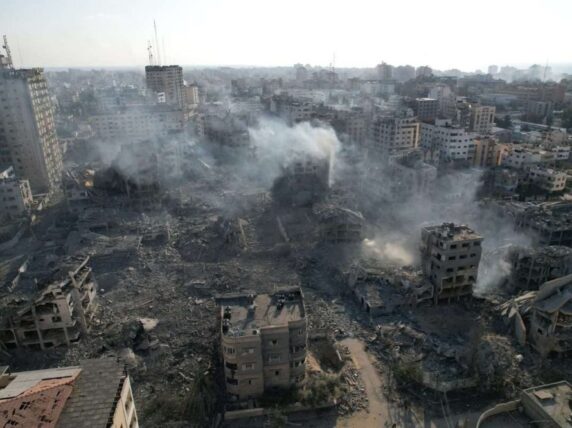Reversing the cuts to safe water, sanitation and hygiene (WASH) needs to happen urgently
Eighteen months ago the UK WASH Network wrote an open letter to the then secretary of state for the foreign commonwealth and development office to voice our deep concern regarding the 80% cuts to the UK aid budget for WASH reported in the press.
Much has changed in the world since then, but the situation of funding for water resources, drinking water services, sanitation and hygiene has deteriorated. The ICAI report on aid to the sector confirms that funding has plummeted since before the abrogation of the 0.7% GDP manifesto commitment, to a fraction of 2010-2018 levels.
We said in our letter that these cuts ended an era of bold global leadership by the UK on the provision of safe water, sanitation and hygiene for the world’s poor, just when that bold UK leadership is needed most. The UK had cut funding to sanitation and hygiene in the midst of a global pandemic.
Cutting bilateral support to water, sanitation and hygiene by 80% during a global pandemic was not only a dereliction of the UK’s moral obligations to the world’s poor, but also wholly incompatible with the UK’s claimed leadership of the climate agenda and advancing the government’s stated international priorities of girl’s education, health security, climate and nature, economic growth and conflict resolution.
That era of leadership on water, sanitation and hygiene was fostered by the Rt Hon Andrew Mitchell, Secretary of State for International Development under Prime Minister David Cameron from 2010-12, and now recently re-appointed as Minister of State Development and Africa.
At Cop27 a few days ago, Andrew Mitchell spoke about the importance of WASH for mitigating climate change. It is imperative that funding to this sector is restored, and we hope that Andrew Mitchell will once again take a leadership role in the sector.
The importance of this cannot be overstated. Water and sanitation are human rights, fundamental in themselves and integral to all other elements of development. Managing water resources is essential to climate adaptation, to reducing hunger and fostering sustainable development. The UK’s stated development goals depend on this.
Health security
Half the people in urban parts of Africa are unable to access basic WASH services, which exposes them to water borne disease that cause 1.4 million premature and avoidable deaths each year.
Since 2015, the UK has helped over 62.6 million people gain access to safe water and sanitation. The cuts meant a staggering 10 million people stand to lose out on gaining access to clean water, sanitation and hygiene facilities. In the midst of the pandemic, the decision to halt support for basic health maintenance in this way was simply unethical. These conditions leave those without services exposed to both current endemic diseases that prey on particularly on children, and worsen global exposure to future pandemics.
Girl’s education
Millions of school days are lost every year because of water-related illnesses. Over half of primary schools in low-income countries are unable to provide access to safe sanitation, and this is a known barrier to girls’ school attendance and improved educational outcomes.
Women and girls spend a total of 200 million hours fetching household water each day. The UK’s decision to cut investment in WASH will directly condemn millions of girls to a life of drudgery and lost opportunity. It undermines delivery of their stated target of getting 40 million more girls into primary and secondary schools globally.
Climate and nature
Access to WASH is a critical component of climate resilience. It is impossible to reconcile these cuts and their impact on the world’s poorest communities’ vulnerability to climate shocks. Aid for water resources is essential to prevent the loss of water ecosystems and water-related biodiversity.
Climate change is water change, whether in the form of floods, droughts, groundwater depletion or contamination. At Glasgow Cop26 the UK government committed to ensuring our economy has a fair water footprint, and must back this up with financing commensurate to the challenge.
Economic growth and security
Every £1 invested in water and toilets returns an average of £4 in increased productivity. Water-related losses, including the economic consequences of inadequate WASH provision, will hit GDP growth by as much as 6% by 2050.
Across the world, water crises are a key factor in both civil and ethnic unrest and regional conflict. Pulling the plug on the UK’s investment on WASH, at a time when the world needs our leadership in this area most, is a clear strategic misstep if the UK government is genuine about its ambitions for inclusive growth, fair trade and conflict prevention.
Our asks remain the same as 18 months ago, but are more urgent than ever:
- The immediate reversal of the draconian cut in spending on the most essential basic services of water supply, sanitation, and hygiene for the world’s vulnerable people.
- Convening of UK and global water expertise and multi-stakeholder representatives to develop a progressive UK’s strategy in response to the global water crisis which maintains an appropriate level of investment, improves efficacy of aid on WASH, joins up government action for shared water security and realises the UK’s global leadership ambitions.
- Ensuring that global water security and universal WASH access is a priority across UK
government and for our global partners.
Category
News & ViewsThemes
WASH



